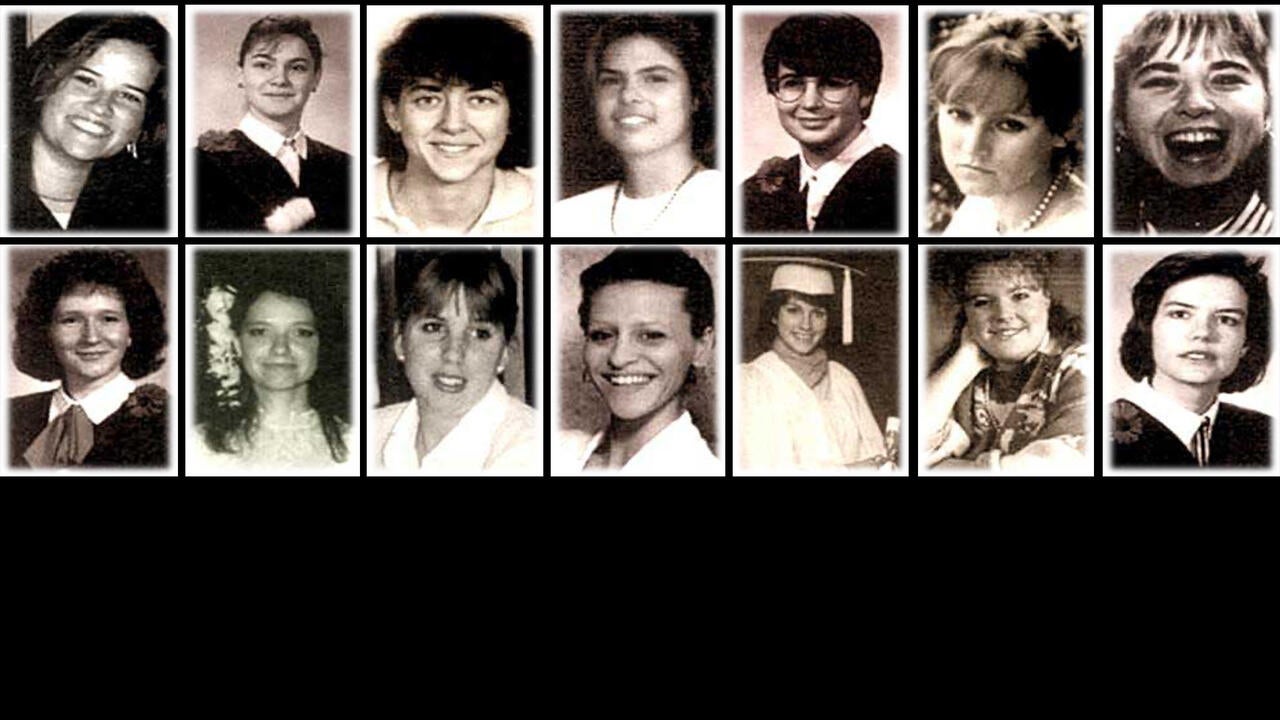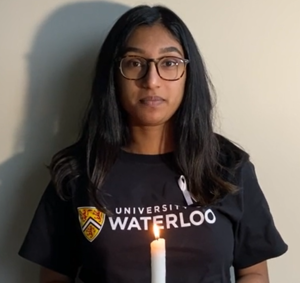
Honouring the December 6 victims
Dean works to promote engineering to the next generation of women

Dean works to promote engineering to the next generation of women
By Carol Truemner Faculty of EngineeringMary Wells considered herself an engineer rather than a woman in engineering when she graduated from McGill University in 1987.
It wasn’t until the December 6, 1989 killing of 14 women at École Polytechnique de Montréal that she realized the significance of her gender in the profession for the first time.
“I consciously remember thinking that I was also a woman in engineering and could have easily been one of those women in the room,” says Wells, who began serving as dean of Waterloo Engineering five months ago. “I was completely shocked and horrified by what had happened and it is etched in my mind forever.”
Like many of the young women who were targeted and killed or wounded by the gunman, Wells had also studied materials engineering in Montreal and was about the same age.
Beginning that day, she made a conscious decision to honour the victims by supporting current women engineering students and promoting the diverse field of engineering to young girls.
“I want to do everything I can to encourage the next generation of women to pursue engineering since they did not have a chance to do so,” Wells says.
Over the years, Wells has held a variety of roles in which she’s worked to establish a welcoming environment where women can pursue scientific research and study.
She served as the first associate dean of outreach for Waterloo Engineering, headed the Faculty’s Women in Engineering committee for many years and was involved in developing and leading numerous programs for girls, women, parents and teachers. From 2013 to 2018, she chaired the Ontario Network of Women in Engineering.
Despite focused effort, Wells says that women continue to be significantly under-represented in engineering programs.
“It’s critical that we don’t take our foot off the accelerator in terms of the outreach, mentorship and pathway programs we have created to expose youth to careers in engineering,” she says.
Wells hosts today’s University of Waterloo online ceremony beginning at 10:30 a.m. to recognize the National Day of Remembrance and Action on Violence Against Women.
Waterloo Engineering female students will read the names of the 14 young women murdered and light a candle for each. One candle will also be lit for  the 10 women and four men injured 31 years ago.
the 10 women and four men injured 31 years ago.
The December 6, 1989 victims will be commemorated by women engineering students.
“Many of the survivors not only suffered physically but from post-traumatic stress as well. At least two students later committed suicide as a result of the massacre’s emotional toll,” Wells says. “It’s important to recognize all the victims of that day.”
Other speakers at today’s ceremony include Feridun Hamdullahpur, University of Waterloo’s president and vice-chancellor, Jean Becker, the University’s senior director of Indigenous Initiatives, Sara Casselman, executive director of the Sexual Assault Support Centre of Waterloo, Bardish Chagger, federal minister of Diversity and Inclusion and Youth, Anita Davis, president of CFUW KW, and Catherine Fife, member of provincial parliament for Waterloo.

Read more
Nanotechnology engineering student works to foster a welcoming environment for women in engineering

Read more
Mechanical engineering masters student looks to engage the community to encourage gender equity.

Read more
Celebrating the accomplishments of Mansour Esnaashary Esfahani, Mari Foroutan and Jaya Gupta
The University of Waterloo acknowledges that much of our work takes place on the traditional territory of the Neutral, Anishinaabeg, and Haudenosaunee peoples. Our main campus is situated on the Haldimand Tract, the land granted to the Six Nations that includes six miles on each side of the Grand River. Our active work toward reconciliation takes place across our campuses through research, learning, teaching, and community building, and is co-ordinated within the Office of Indigenous Relations.